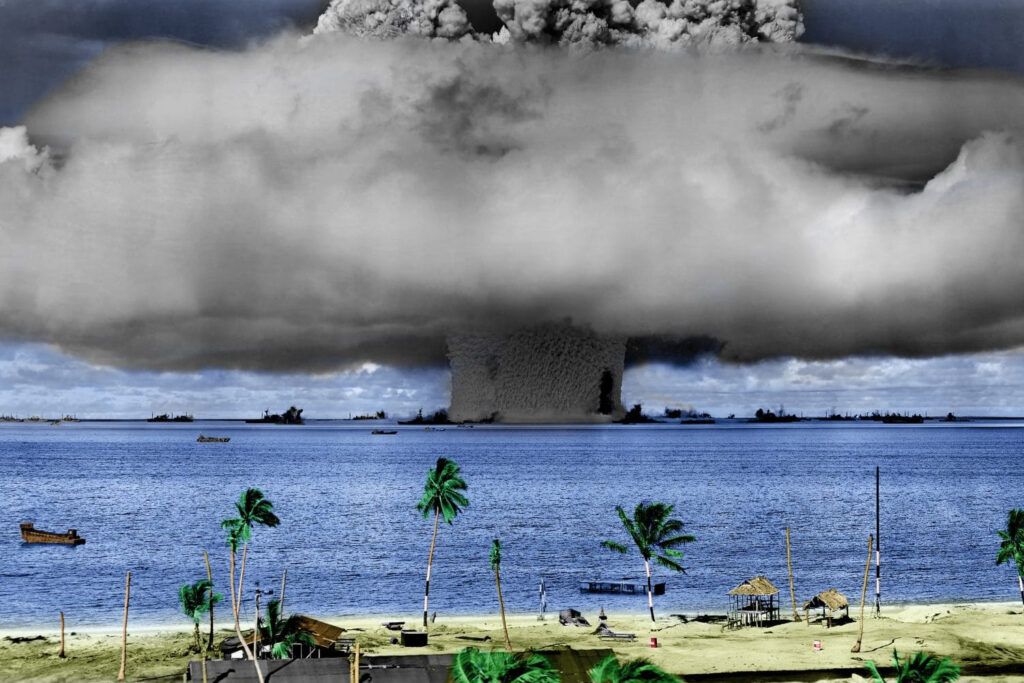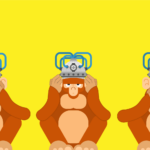What justice means to communities affected by nuclear testing
By Rebecca Davis Gibbons | February 2, 2023
 A nuclear weapon test by the US military at Bikini Atoll in 1946. (Credit: US Defense Department image via Wikimedia Commons, licensed with PD-USGov-Military)
A nuclear weapon test by the US military at Bikini Atoll in 1946. (Credit: US Defense Department image via Wikimedia Commons, licensed with PD-USGov-Military)
Editor’s note: This commentary is part of a roundtable on nuclear injustice.
I commend Franziska Stärk and Ulrich Kühn on calling attention to the important but underappreciated topic of nuclear injustice in their recent piece in the Bulletin. As their article makes clear, many individuals, communities, and countries have faced nuclear-induced injustices over the course of the nuclear age.
Some readers of Stärk and Kühn’s article may disagree over aspects of their assessment of nuclear deterrence or the effects of nuclear weapons in the ongoing war in Ukraine. But there should be little debate over the injustices faced by communities victimized by past nuclear testing and uranium mining. A prime example of nuclear injustice can be found on Kili Island in the Republic of the Marshall Islands, a place where I have firsthand experience.
On the day I arrived on Kili Island with two other recent college graduates, our hosts walked us down to the beach. A power boat came ashore, making its way through a channel where the coral that makes up and surrounds the island had been blasted away. One of the fishermen held up a large tuna. He pulled out a knife and cut some of the flesh and gave it to us. I enjoyed the freshest sashimi I had ever tasted to this day.
It turned out, however, that fish, a traditional staple of the Marshallese diet, was not going to be part of mine as I lived and taught elementary school on the island in the early 2000s. The community on Kili, a speck of an island at 200 acres, is inhabited by the Bikini people. In February 1946, the US military governor for the Marshall Islands arrived on Bikini Atoll and asked its residents to temporarily move off their atoll, with its 23 islands and a lagoon full of fish, so the United States could test weapons for “the good of mankind and to end all world wars.” They agreed to leave with the promise they would return.
The Bikini community would never move back to their atoll following the detonation of 23 nuclear devices in the 1940s and 1950s.
Part of the community came to reside on Kili in 1948, a formerly uninhabited coral island—not an atoll with a lagoon—which made sailing and fishing difficult. While on Kili, the other teaching volunteers and I would not subsist on fish, coconut crabs, pandanus, breadfruit, and coconuts, but rather on canned beef stew, canned fruit cocktail, canned asparagus, white rice, and chicken legs provided by the US government. The reason for this interesting and highly processed food selection? The island of Kili could not sustain the traditional Marshallese diet and the islanders have had to rely on food shipped from the United States.
A traditional—and sustainable—way of eating is just one of many things the US government has stolen from the Bikini community and other Marshallese by conducting 67 atmospheric nuclear tests. Marshallese have lost their culture, their land, and their health. What does justice, therefore, mean to a community that has lost so much?
One of the most important contributions of the Humanitarian Initiative exploring the impact of nuclear weapons was in reminding the world that there are individuals with expertise on nuclear weapons that never wanted such knowledge. (The Humanitarian Initiative emanated in the early 2010s from part of the nuclear nonproliferation community frustrated by the lack of progress in nuclear disarmament.) Individuals from Hiroshima, Nagasaki, Australia, Kazakhstan, Algeria, Western China, the Southwest United States, and the South Pacific learned firsthand about the effects of nuclear weapons when these locations became sites of nuclear detonations. In the same vein, these individuals have become experts in nuclear injustice and justice; they know best what could make their communities whole in 2022.
I asked recently one of my Bikini friends from Kili Island what nuclear justice means to him. He spoke of the inherent unfairness that the Bikini community cannot go back to its homeland and that cancers stemming from radiation are killing their people. He is frustrated that most US citizens still do not know much about what their government did to the Marshall Islands and the Marshallese people with its nuclear testing program. My friend said that justice would mean returning home to a safe environment and sufficient medical care. But more important than any of that, for him, is an apology. The United States “is a powerful country and can do many things,” he said. “But it cannot apologize.”
Justice comes in many different forms, and discussions on the topic must include those most burdened by nuclear issues; they are necessary voices in any nuclear injustice framework.
Together, we make the world safer.
The Bulletin elevates expert voices above the noise. But as an independent nonprofit organization, our operations depend on the support of readers like you. Help us continue to deliver quality journalism that holds leaders accountable. Your support of our work at any level is important. In return, we promise our coverage will be understandable, influential, vigilant, solution-oriented, and fair-minded. Together we can make a difference.














